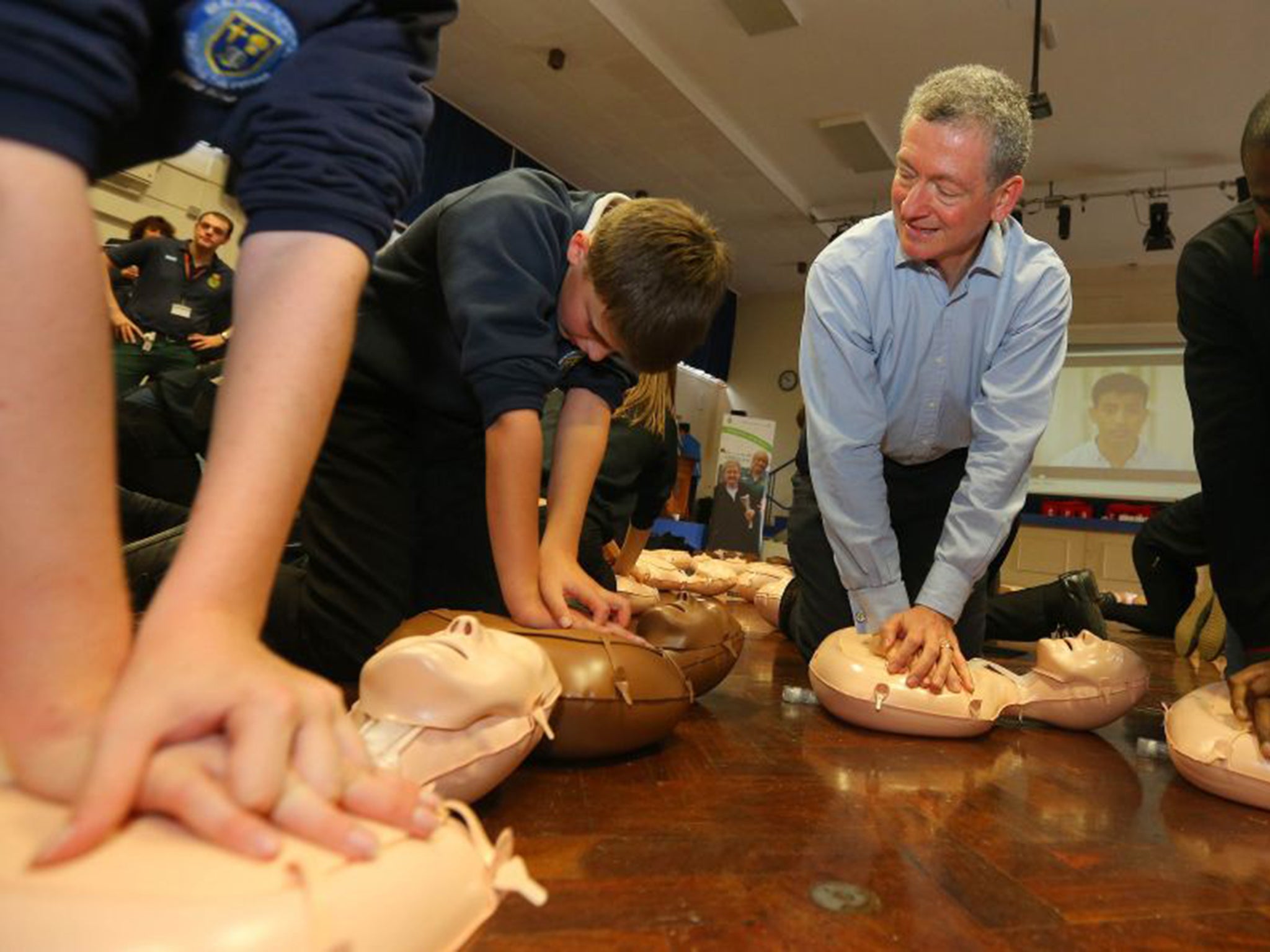CPR lessons in schools could save 5,000 lives a year
Critics will say that teachers have enough on their plates, but an overwhelming majority of teachers and parents support the idea

"I was 14 when I saved my mum’s life,” recalls Samantha Hobbs from Yeovil in Somerset. “It was a Monday morning and… I heard my dad on the phone saying he thought my mum was dead.” Mr Hobbs had called 999, having woken up to find his wife unresponsive and cold. “I went into autopilot and started chest compressions,” says Samantha. When paramedics arrived, they were confident that her training had saved her mother’s life.
Samantha thinks that Cardiopulmonary Resuscitation (CPR) should be taught in schools, and I agree. As a teenager I joined the St John Ambulance after a friend at school saw someone die from a heart attack. I spent many happy sessions with Ambu Man and Resusci Anne, but the British Heart Foundation (BHF) says it takes only half an hour to transform yourself from a bystander into someone who could potentially save a life, and what’s more it will send all the training materials, including a mannequin, to any secondary school for free.
Unfortunately, not everyone has Samantha’s skills. More than 30,000 cardiac arrests happen each year outside of hospital, but 62 per cent of people would not know how to help. An astonishing 92.1 per cent of those 30,000 victims will die. However, if we could raise survival rates to match those in Norway (25 per cent), where CPR is taught in schools, we could save 5,000 lives a year.
It is statistics like these that make learning first aid “a no-brainer”, according to the MP Teresa Pearce. She has sponsored a Bill to make the teaching of basic first aid compulsory in state-funded secondary schools, and she has the support of the BHF, the British Red Cross and St John Ambulance. With the BHF’s free training kits, Ms Pearce believes that in the long run it could save money, as people gain the confidence to know when to call 999 and how to manage emergencies at home, relieving pressure on A&E departments. Critics will say that teachers have enough on their plates, but an overwhelming majority of teachers (84 per cent) and parents (95 per cent) support the idea. Nothing would be added to the curriculum, and schools could choose how and when to implement the training.
The Bill faces its first vote on 20 November – a Friday, when many MPs return to their constituencies. It needs about 100 MPs to vote it through to the next stage, and its supporters want voters to email their MPs to ask them to do it. In the meantime, the BHF has launched an app that explains the basics of CPR, and its website shows how to find a first aid course. “At the point of cardiac arrest,” it stresses, “there is absolutely nothing you can do to make the situation worse for that person.” So why not take 30 minutes to learn how to save a life? As the Hobbs family can confirm, one day somebody might live to thank you for it.
Join our commenting forum
Join thought-provoking conversations, follow other Independent readers and see their replies
Comments
Bookmark popover
Removed from bookmarks